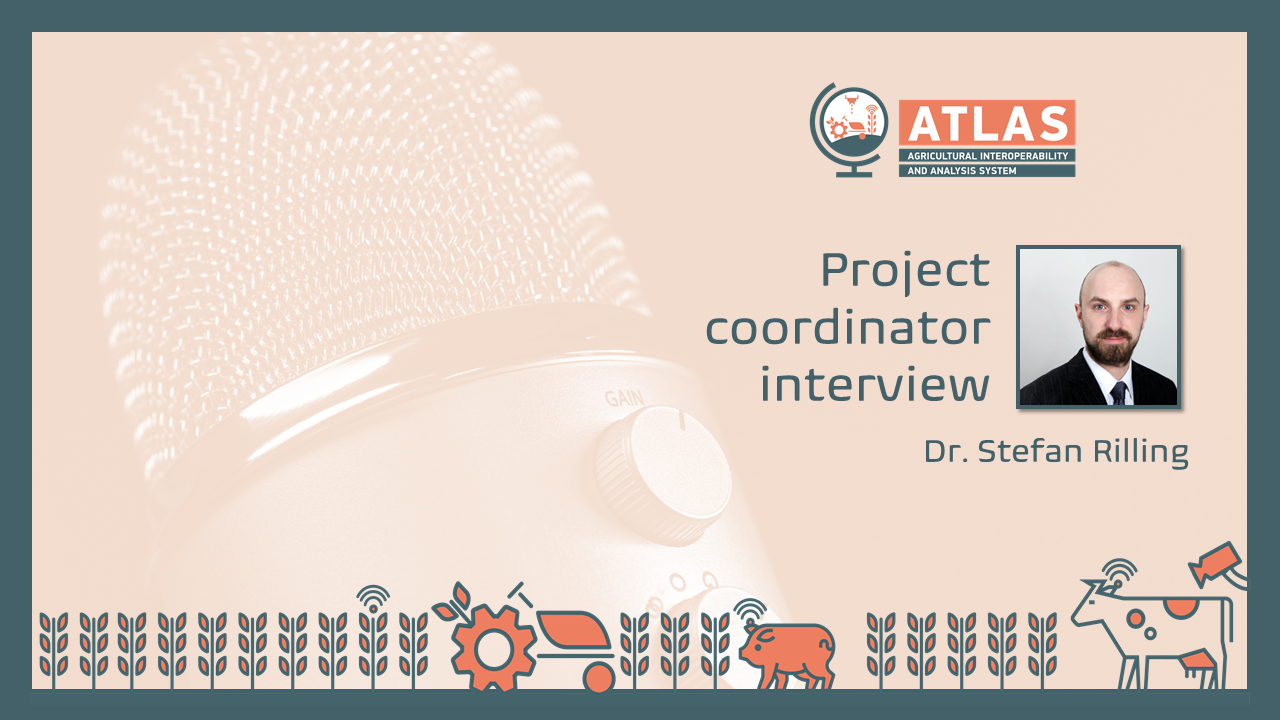The ATLAS project coordinator interview

![]() What are the barriers that agriculture is facing, and ATLAS solutions will help to overcome?
What are the barriers that agriculture is facing, and ATLAS solutions will help to overcome?
Agriculture is already digitised to a significant extend, and this process will certainly increase in the future. A multitude of digital solutions, e.g. software systems, sensors or equipment, is available and used by farmers, and farmers have good reasons to use a specific tool. However, the interconnection of multiple tools, i.e. the exchange of data between these tools, can be very cumbersome due to the lack of interoperability. This is where ATLAS comes into the game: the AIM of ATLAS is to make digital agricultural systems interoperable. This will be achieved through a carefully drafted distributed service architecture with standardized interfaces and data formats.
![]() ATLAS project is almost halfway. How is the project progressing? Are there any results yet?
ATLAS project is almost halfway. How is the project progressing? Are there any results yet?
ATLAS is making very good progress, especially considering the pandemic situation which has a huge impact on the life of everyone. We have specified the core system architecture as well as a set of relevant use cases from different fields of agriculture. Basic architectural components have been developed, deployed and are currently tested. First services for various agricultural use cases have been specified and are currently implemented. Furthermore, work on concrete approaches and algorithms has been conducted, e.g. in the area of livestock behaviour analysis, satellite data analysis, soil water and soil moisture modelling, and the next generation of agricultural machinery communication systems. Various sensor systems have already been installed on the pilot sites, and a first round of Open Calls has been completed. Through this, six innovative companies are extending the consortium, bringing cutting edge technologies to the ATLAS interoperability network.
![]() To what extend has the Covid crisis impacted ATLAS implementation and what mitigation measures have been taken?
To what extend has the Covid crisis impacted ATLAS implementation and what mitigation measures have been taken?
As already mentioned, the COVID crisis has a huge impact on the whole society, and ATLAS is also heavily affected by this. Home Office, lockdowns and travel restrictions affect the work of every partner. We have requested a 6 months extension of the project duration and re-adjusted the work plan. Travel restrictions are still a serious issue, especially in this phase of the project where the technology developed has to be brought out of the laboratory onto the field. We hope that the situation improves significantly once the vaccination campaign has progressed.

